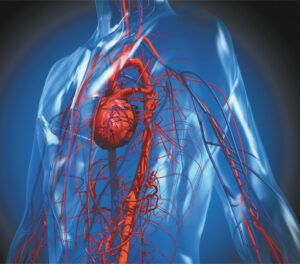 Think of your heart as a pump or the engine of the car. Like a pump, it has electrical and plumbing parts. Depending on what may be wrong with your heart, you may see a cardiologist for the plumbing side issues or an electrophysiology cardiologist for the electrical issues.
Think of your heart as a pump or the engine of the car. Like a pump, it has electrical and plumbing parts. Depending on what may be wrong with your heart, you may see a cardiologist for the plumbing side issues or an electrophysiology cardiologist for the electrical issues.
Manatee Memorial Hospital’s Heart and Vascular Center’s Structural Heart team and Cath Lab team provide information on fundamental cardiology concepts and how to keep your heart healthy.
What can I expect when I see a cardiologist?
A cardiologist specializes in your heart. You will have a conversation about your health history, your family health history, your medications and symptoms and an exam where they may listen to your heart with a stethoscope, take your blood pressure and heart rate.
What are some tests your cardiologist may want you to take?
• Blood tests – to look at cholesterol levels or check electrolytes.
• Electrocardiogram (EKG) – to look at the electrical function of the heart. A cardiologist will place three to 10 small patches on your body connect them to a machine to see how your heart is electrically functioning, including your heart rhythm, heart rate and to determine if you might have had a previous heart attack.
• Echocardiogram (ECHO) – uses soundwaves to look at the structure of the heart and leaky or stiff valves.
• Transesophageal Echocardiography (TEE) – uses soundwaves, but is performed under sedation. The echo transducer that produces the sound waves for TEE is attached to a thin tube that passes through your mouth, down your throat and into your esophagus. Because the esophagus is so close to the upper chambers of the heart, very clear images of those heart structures and valves can be obtained.
• CT scan – uses a computerized X-ray to look at the vessels that provide blood to your heart.
• MRI – uses a magnetic field and radiofrequency waves to look at your heart.
• Stress Test – (also called an exercise electrocar-diogram) – you may walk on a treadmill or pedal a stationary bike to increase your heartrate. This test may tell a cardiologist if you have clogged arteries or have a change in your electrical system when your heart is pumping faster during exercise.
• Heart Catheterization – a small, thin catheter will be inserted into your arteries through your upper leg (groin) or your wrist. Dye will be injected into your coronary arteries to watch the blood flow to determine if you have a blockage. If there is a blockage, the cardiologist may remove the blockage and place a stent to keep the vessel open for your blood to flow through it.
Why am I being referred to an interventional cardiologist?
An interventional cardiologist has extra training and experience with the structural parts of your heart. They may be able to:
• Remove blockages in heart arteries by placing a stent to allow blood flow to your heart.
• Fix a leaky or worn-out valve – either by surgery in the OR or in the cath lab.
• Lower your chance of stroke by inserting a tiny device into a cavity of your heart. This left atrial appendage implant may allow you to stop some medications.
• Patch small holes in your heart (atrial septal defect or patent foramen ovale closure)
Why am I being referred to an electrophysiology cardiologist?
An electrophysiology cardiologist has extra training and experience with the electrical part of your heart. They may be able to:
• Stop you from having too low of a heartbeat (bradycardia) by implanting a pacemaker. This is a tiny computer that helps your heart beat at a normal pace.
• Stop your heart from beating irregularly (atrial fibrillation [AFIB], ventricular tachycardia [VT] or supraventricular tachycardia [SVT]). Your cardiologist can use different technologies which allow your heart to beat normally again.
Understanding these facts can help you take proactive steps toward maintaining a healthy heart and recognizing potential issues early.
For more information, call 941-745-6874 or visit manateememorial.com/heart
Physicians are on the medical staff of Manatee Memorial Hospital but, with limited exceptions, are independent practitioners who are not employees or agents of Manatee Memorial Hospital. The hospital shall not be liable for actions or treatments provided by physicians. For language assistance, disability accommodations and the nondiscrimination notice, visit our website.









